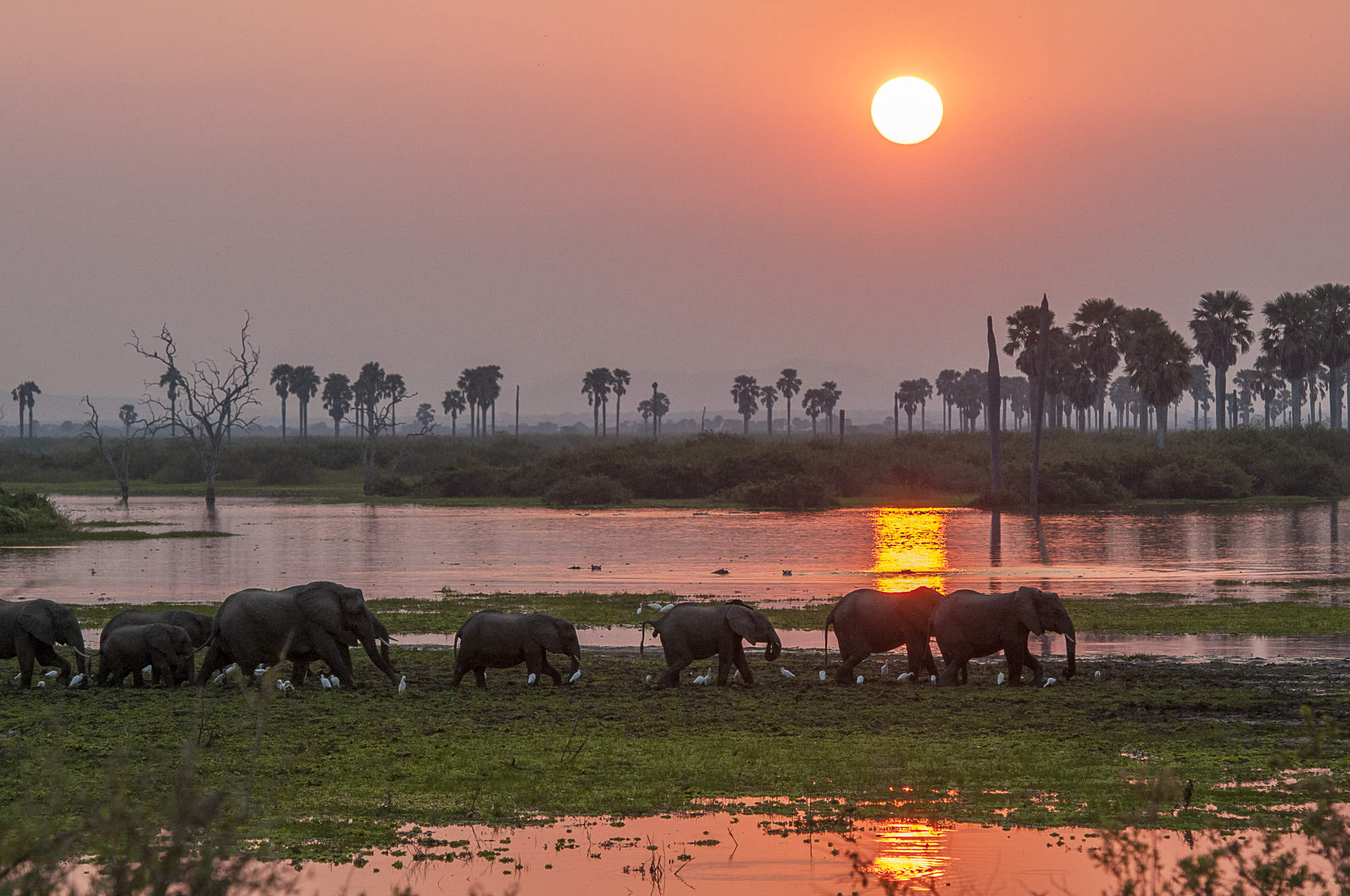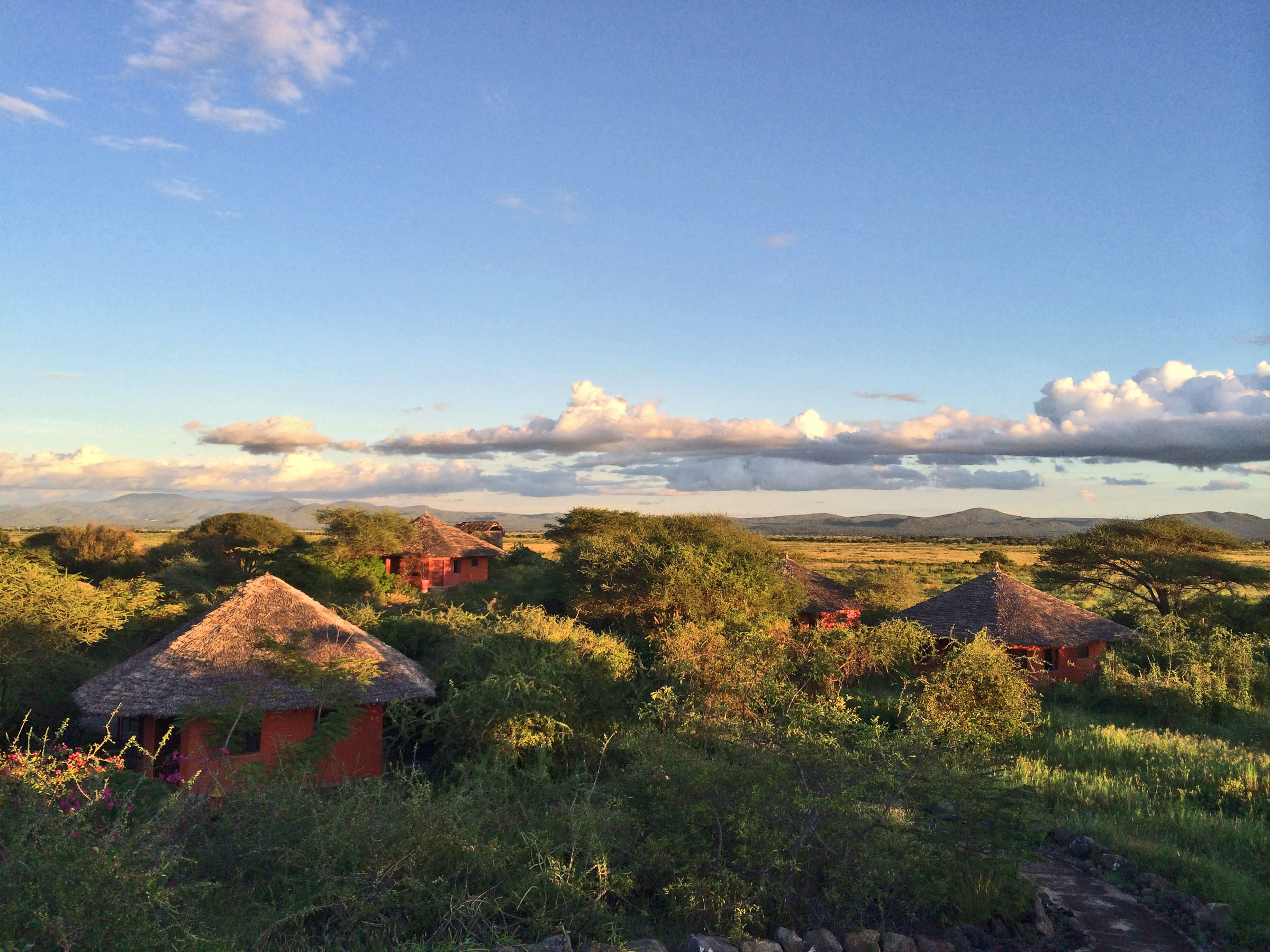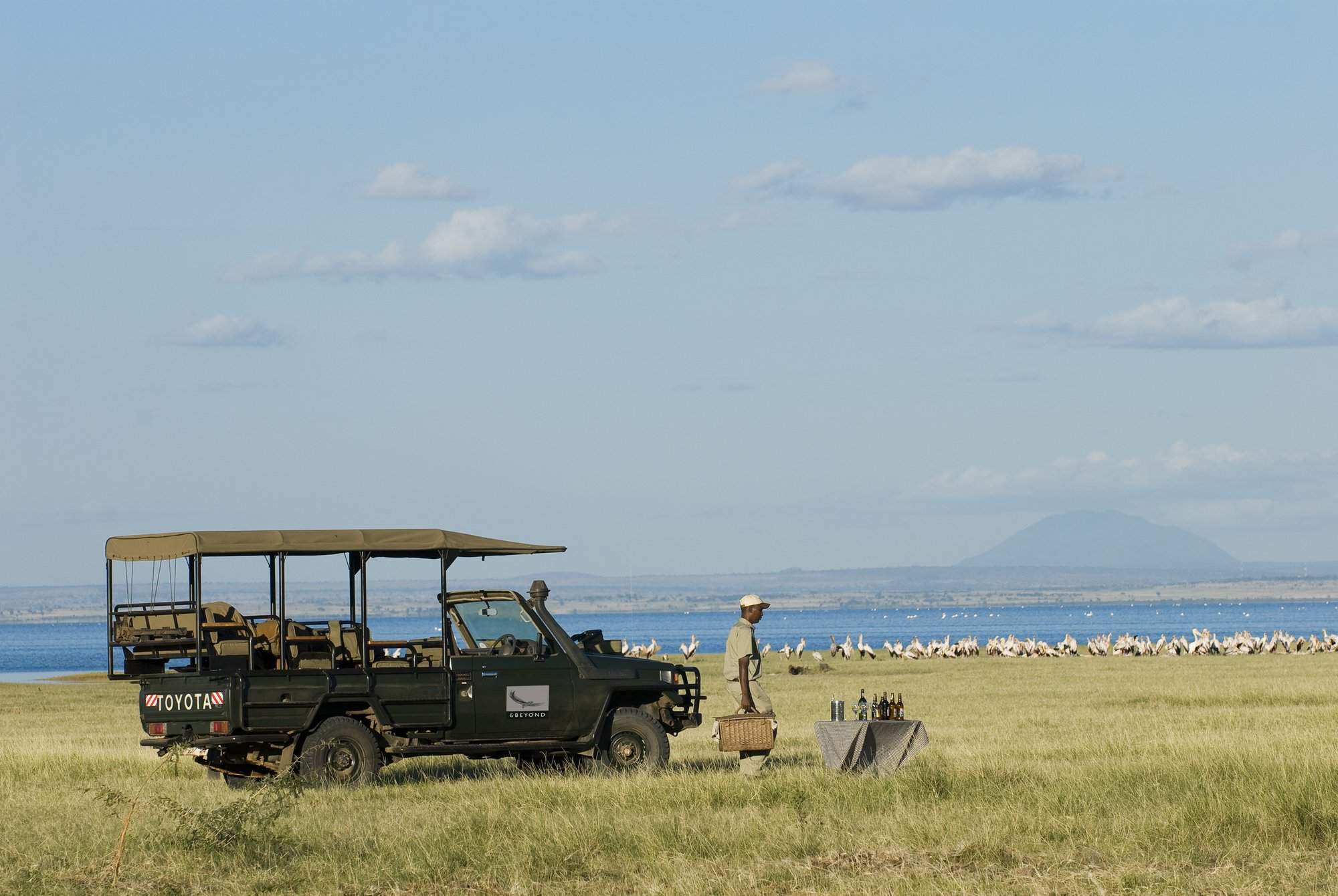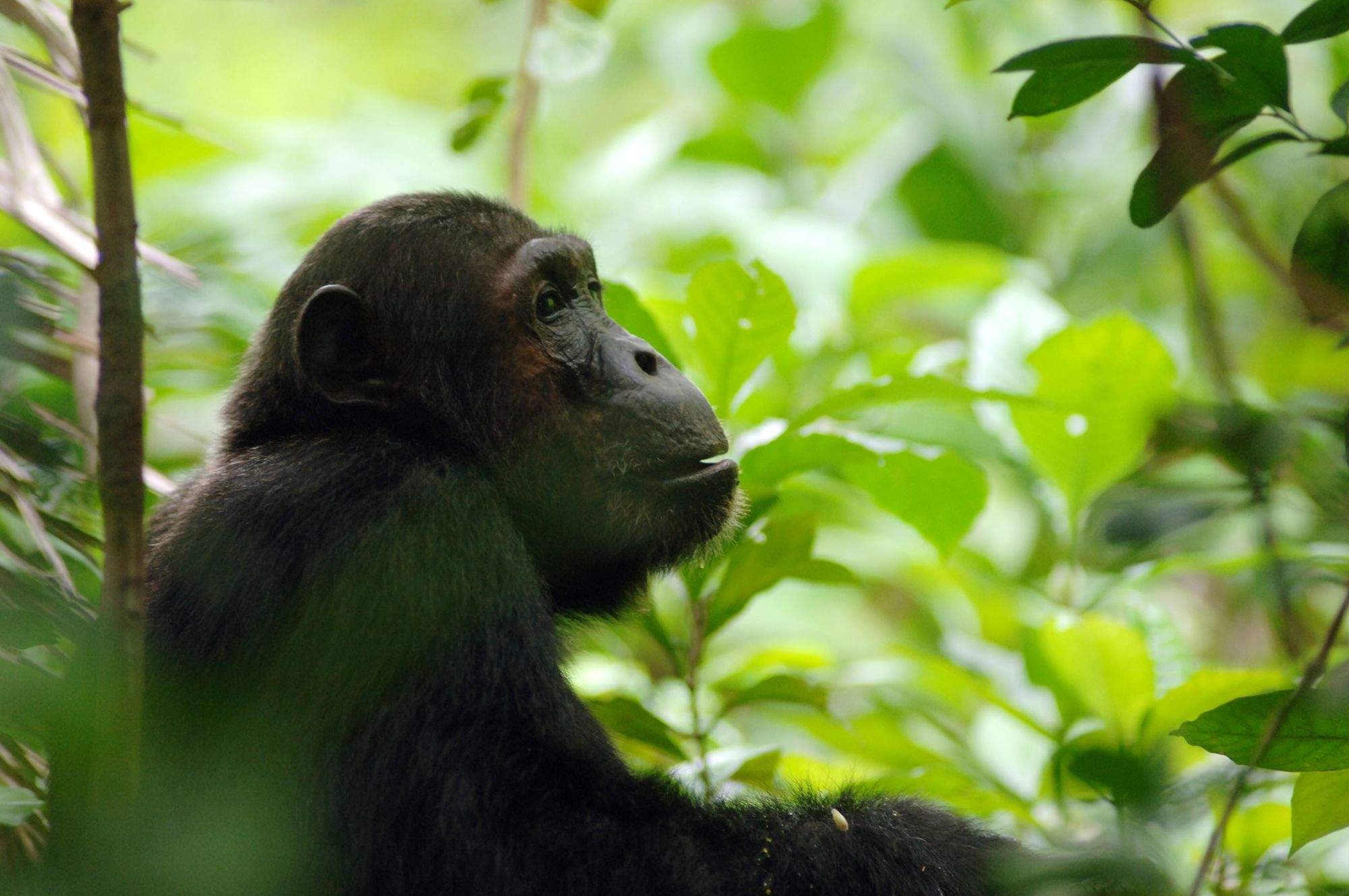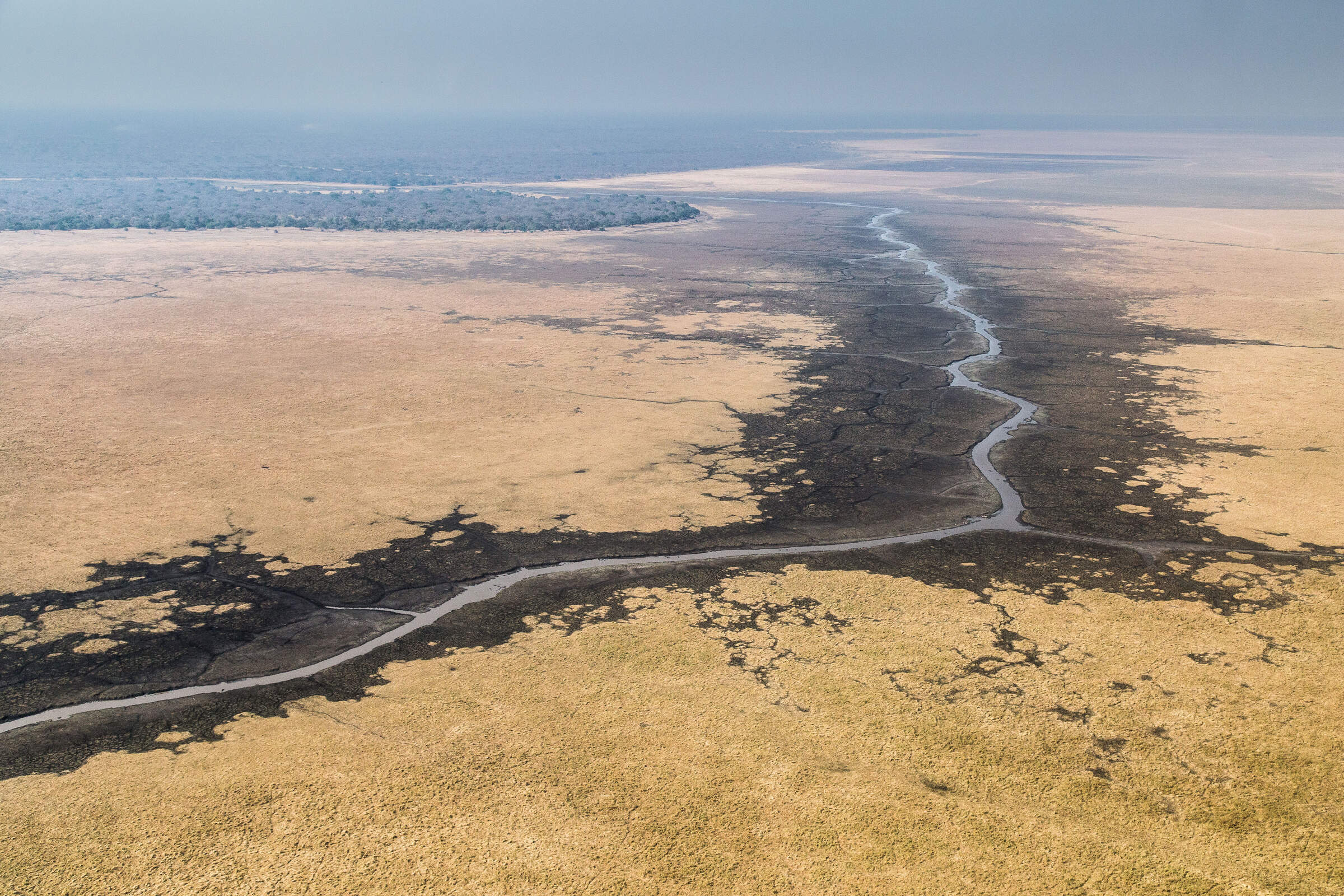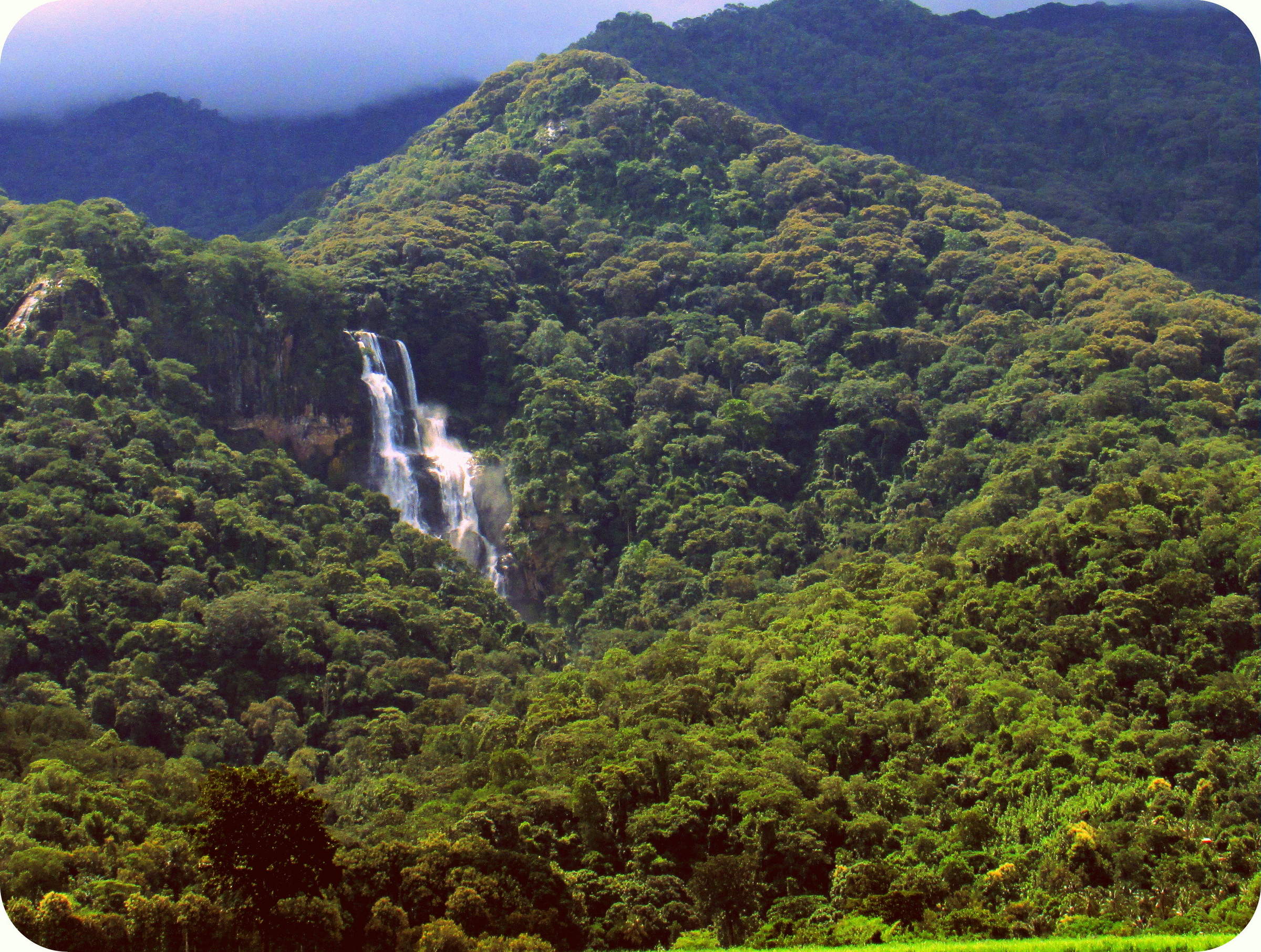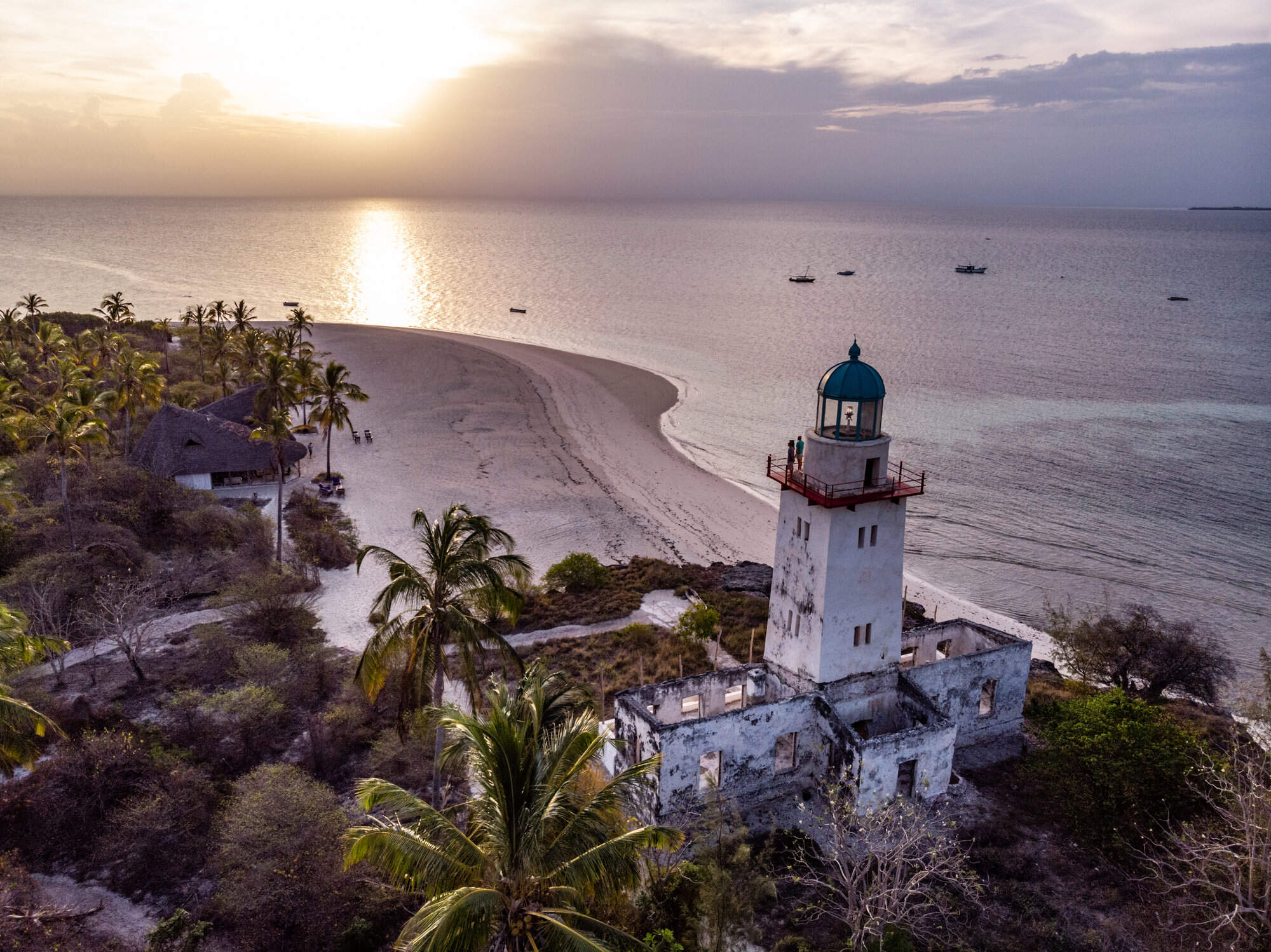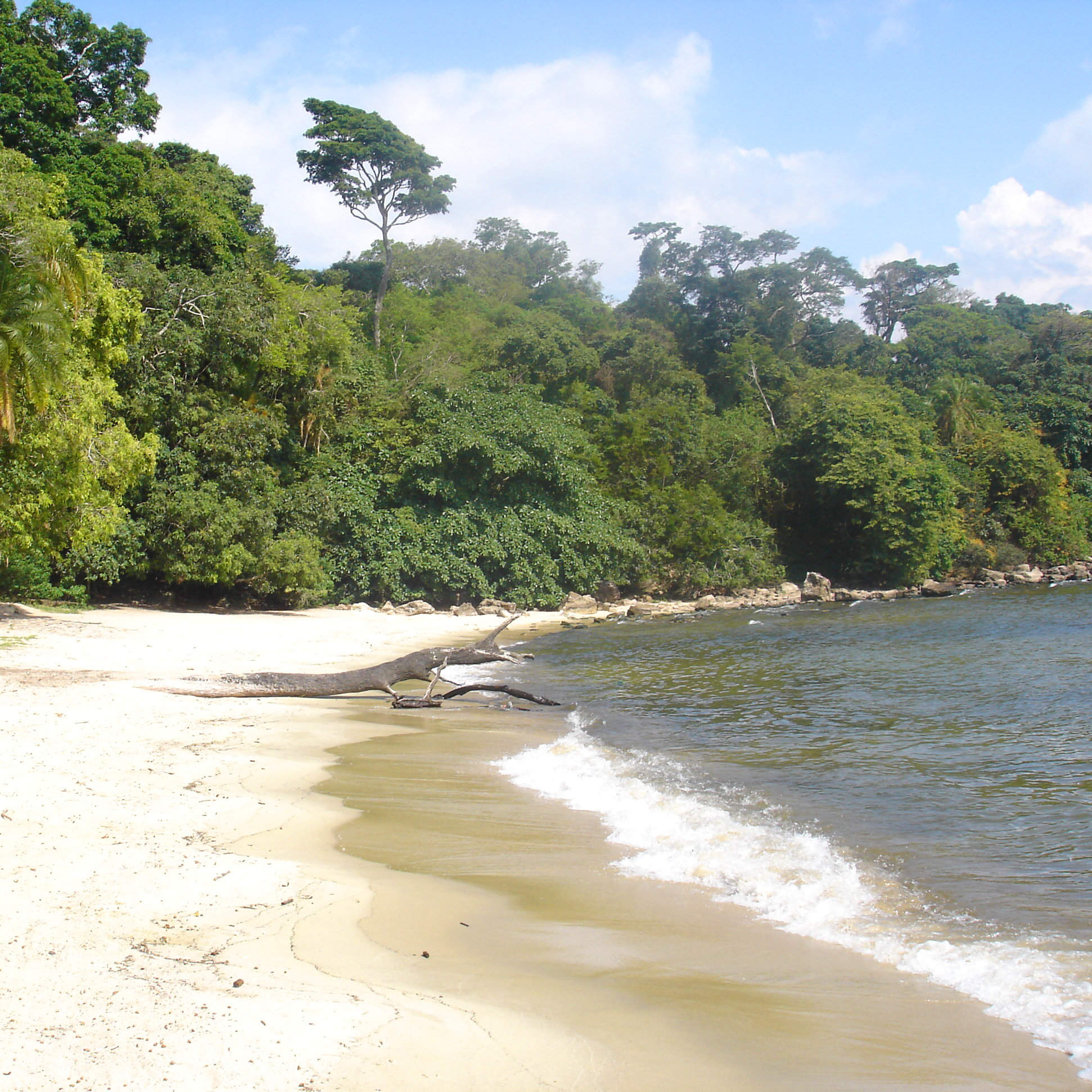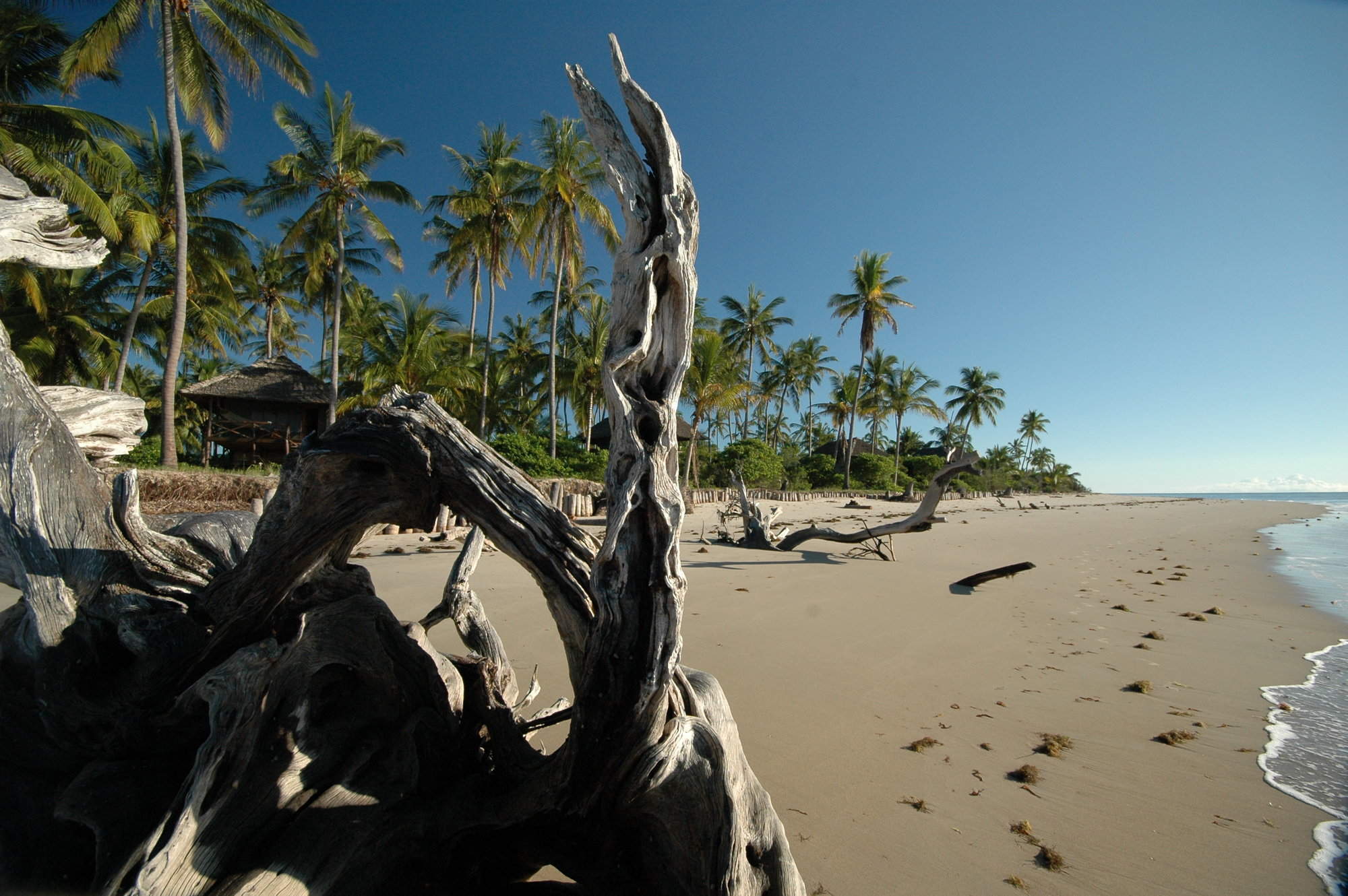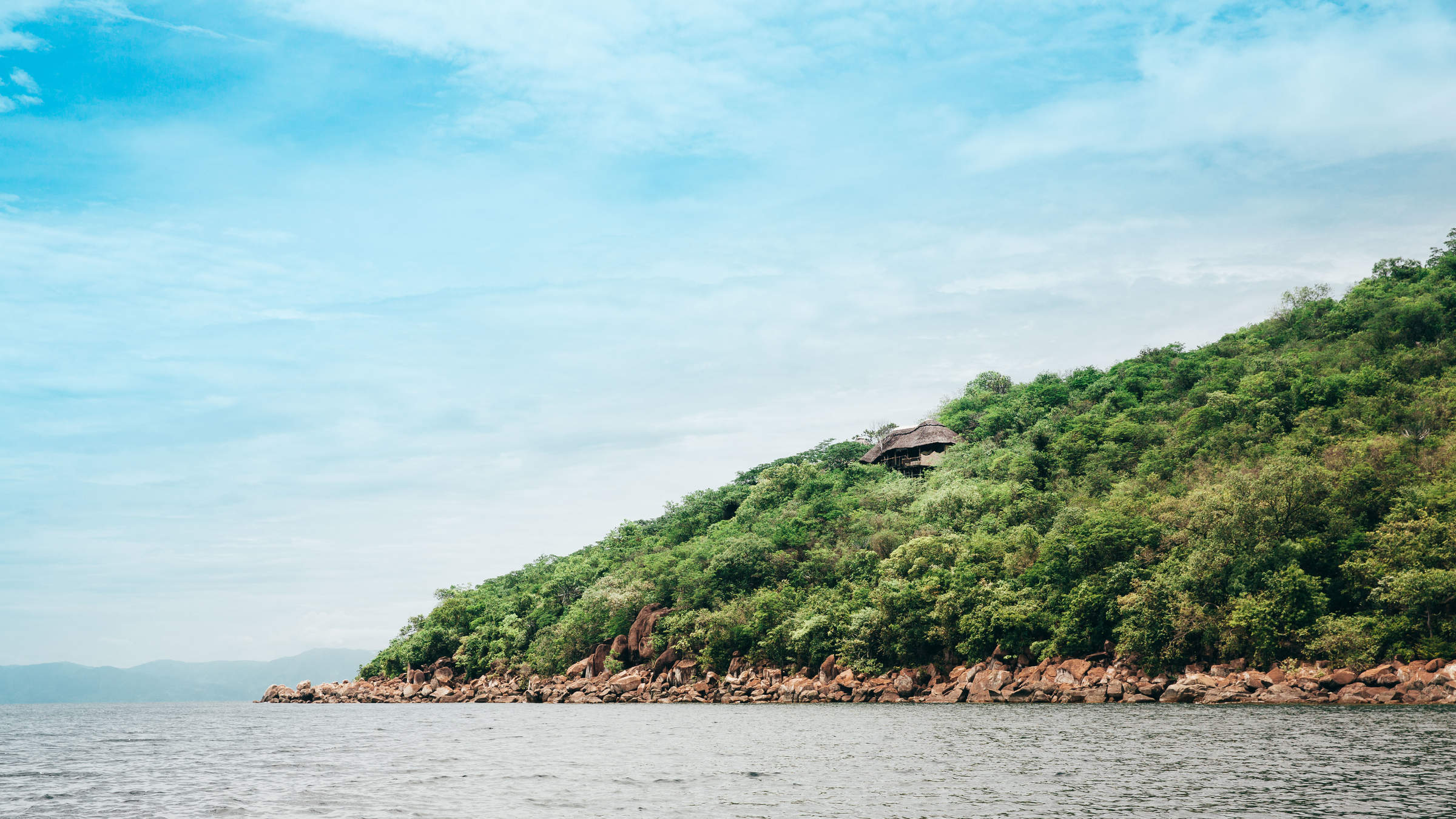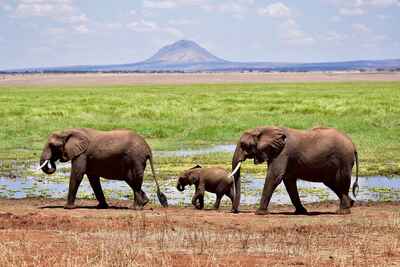
...or elsewhere while on safari.
...and is partly dominated by the Tarangire River.
In the evening the park gets a wonderful atmosphere.
Large numbers of elephant herds congregate in the national park.
There are some great accommodation options located within the national park.
Tarangire consists of mostly dry and open woodlands...
Tarangire National Park offers great wildlife viewings...
...game drives in open-sided vehicles...
...as well as bush walks.
You might spot some wildlife from the terrace of your accommodation...
… the more intimate and remote Kuro Tarangire ...
...the diminutive dik dik...
...ever present impala...
Smaller predators such a serval and bat-eared fox also occur.
Tarangire River snakes its way through the park.
Tarangire National Park
Tarangire National Park
Famous for its baobabs and massive elephant herds, Tarangire shows its quieter side in the park's southern half.
Tarangire National Park covers an undulating area of 2,600km2, between the plains of the Maasai Steppe to the south-east, and the lakes of the Great Rift Valley to the north and west. The northern part of Tarangire is dominated by the perennial Tarangire River, which flows through increasingly incised ravines until it leaves the north-western corner of the park to flow into Lake Burungi. In the south are a series of vast swamps which dry into verdant plains during the dry season.
Although Tarangire is one of only four parks on Tanzania's sometimes busy 'northern circuit', it is often either missed out, or given less than 24 hours, by the many relatively cursory mini-bus tours. This means that few visitors go beyond the park's busy northern area, where the majority of camps and lodges are located.
If you decide to come to Tarangire, then we recommend spending a few days in the south of the park, which gets few visitors and retains a real air of wilderness.

Safaris visiting Tarangire
Just ideas, we'll always tailor-make a trip for you
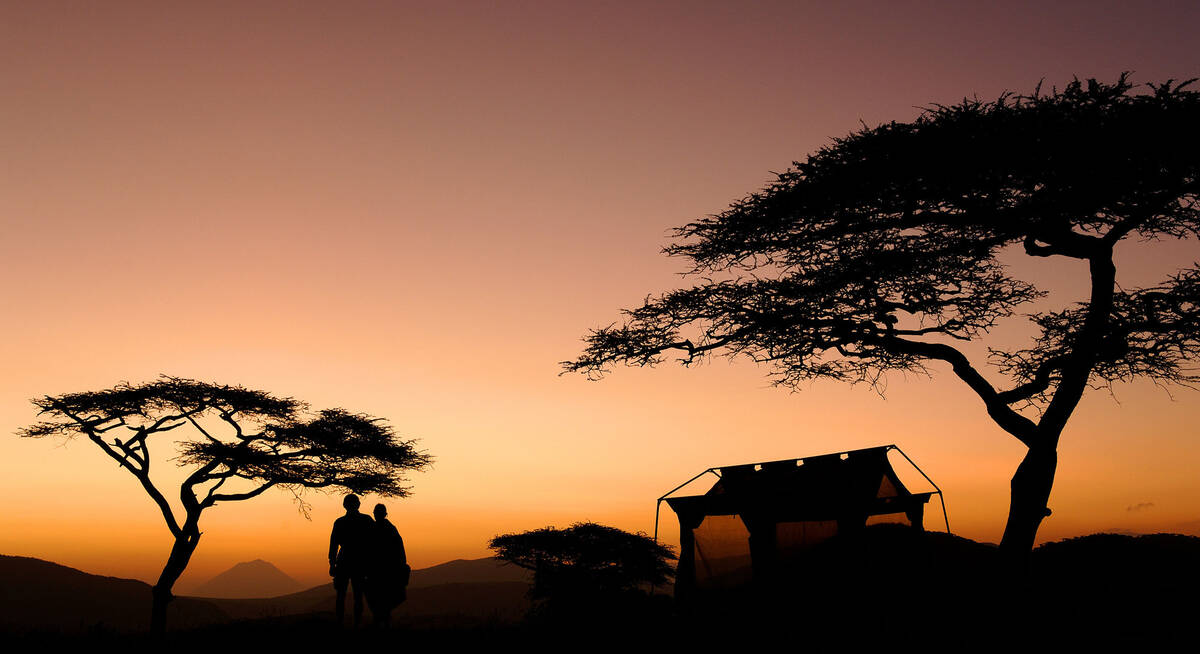
Firefinch Drive-Fly Safari
9 days • 3 locations
KILIMANJARO AIRPORT TO KILIMANJARO AIRPORT
Enjoy a combination of privately guided and shared game drives during this good-value exploration of northern Tanzania. Explore game-dense regions from three comfortable bases which offer a variety of activities.
US$7,720 - US$14,200 per person

Tinkerbird Fly-in Safari
8 days • 4 locations
KILIMANJARO AIRPORT TO KILIMANJARO AIRPORT
Explore Tanzania’s famous northern circuit in Tarangire National Park, the Ngorongoro Conservation Area and the Serengeti National Park. Four smart sister camps offer a high level of care, first-class guiding and a wide range of activities.
US$10,410 - US$14,140 per person

Fringe-eared Oryx Fly-in Safari
7 days • 3 locations
KILIMANJARO AIRPORT TO KILIMANJARO AIRPORT
Stay in three superbly positioned camps during this exploration of Tanzania’s famous northern circuit. Excellent views over the surrounding areas, relatively remote locations and game-rich habitat make for an exciting and varied safari experience.
US$7,300 - US$14,860 per person
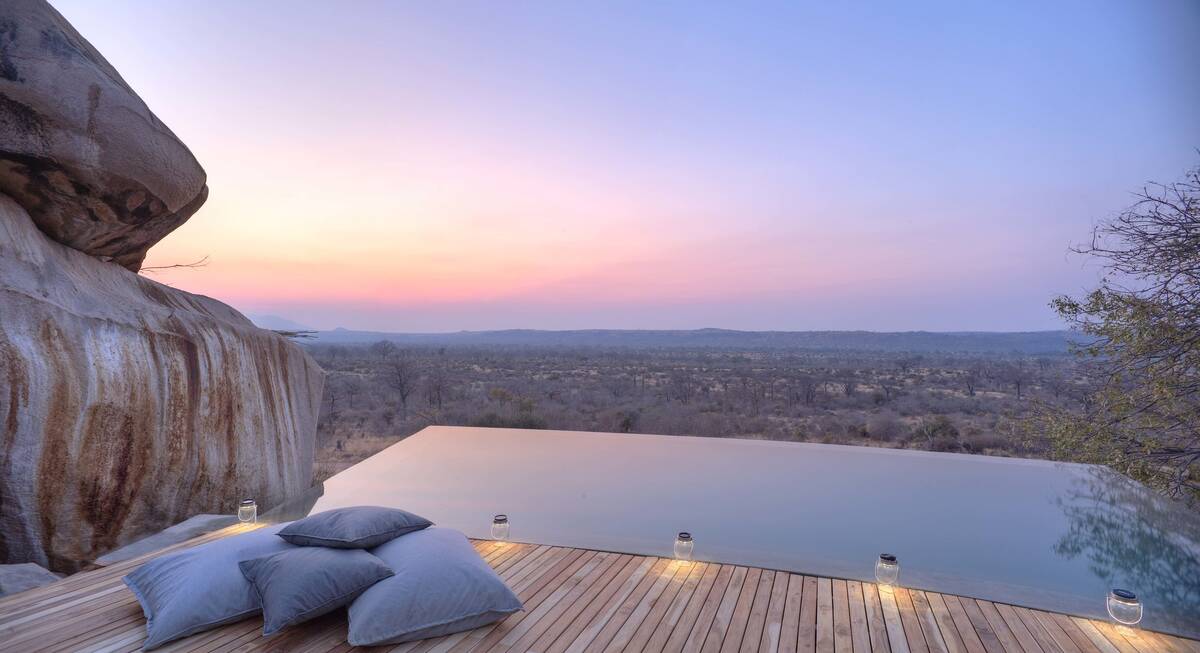
Marabou Stork Fly-in Safari
13 days • 5 locations
KILIMANJARO AIRPORT TO DAR ES SALAAM AIRPORT
Four luxurious camps enable exploration of Tanzania’s north and southern regions. With a range of land- and water-based activities available throughout, decidedly comfortable accommodation and applicable long-stay discounts, this adventurous safari is excellent value.
US$19,410 - US$25,560 per person
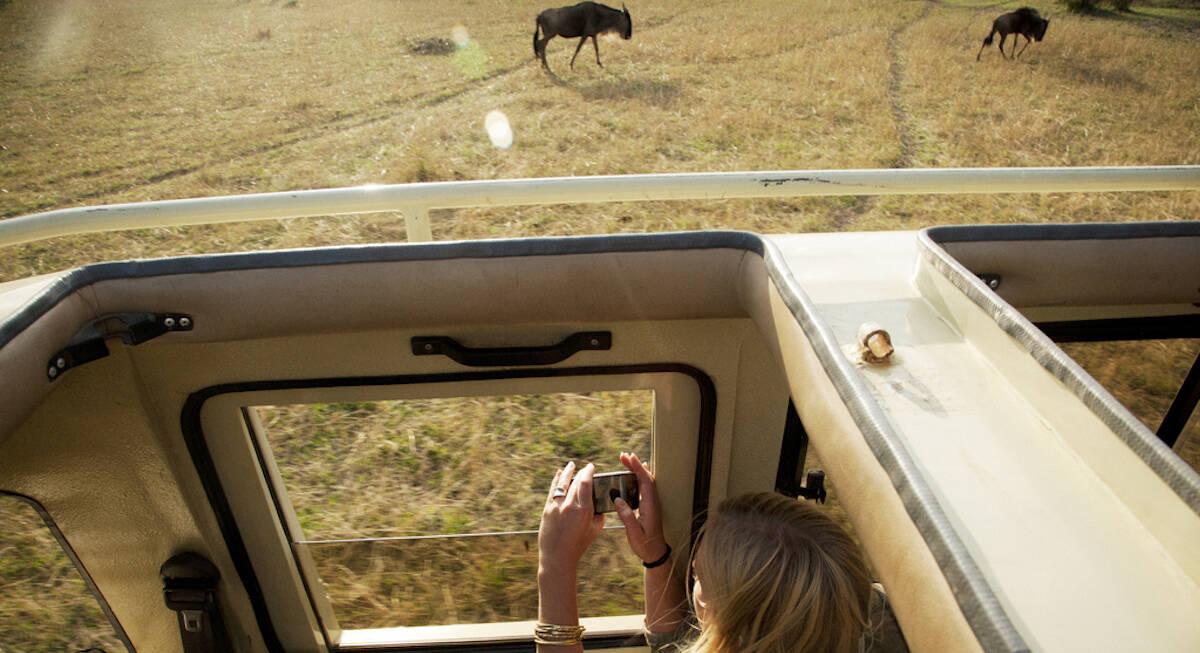
Regal Sunbird Fly-in Safari
12 days • 5 locations
KILIMANJARO AIRPORT TO DAR ES SALAAM AIRPORT
Experience the highlights of Tanzania with a safari in the country’s famous northern parks followed by historic Stone Town and the palm-fringed beaches of Zanzibar, staying in high-quality accommodation throughout.
US$10,570 - US$16,370 per person

Hadeda Ibis Guided Safari
7 days • 3 locations
KILIMANJARO AIRPORT TO KILIMANJARO AIRPORT
This great-value safari, in a private 4WD with your own driver-guide, journeys through the stunning landscapes of northern Tanzania’s Great Rift Valley, focusing on its three top national parks.
US$4,980 - US$6,110 per person

Secretary Bird Fly-in Safari
8 days • 4 locations
KILIMANJARO AIRPORT TO KILIMANJARO AIRPORT
Chosen for comfort and relaxation as much as for its range of activities, this safari makes for a leisurely trip featuring stunning accommodation and swift access to many of northern Tanzania’s best wildlife regions.
US$14,030 - US$18,080 per person
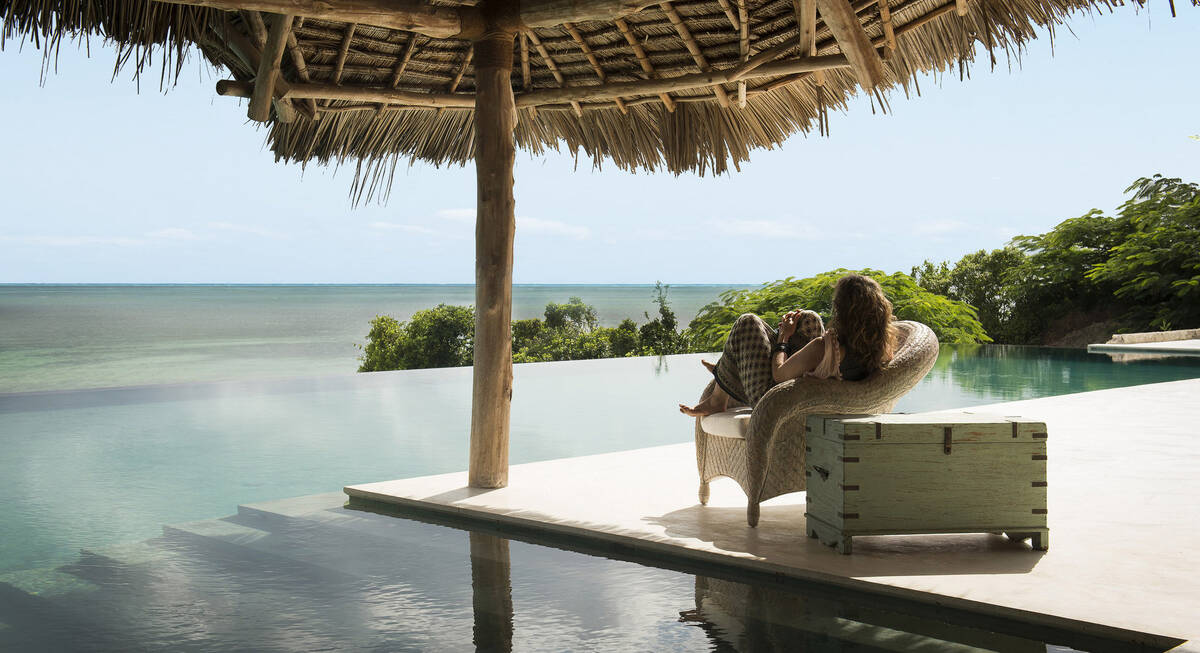
Dik Dik Safari
12 days • 4 locations
KILIMANJARO AIRPORT TO DAR ES SALAAM AIRPORT
Combine safari with peace and relaxation on Zanzibar’s white-sand shores during this exploration of Tanzania. Stay in three high-quality sister camps within Tarangire National Park, Ngorongoro Conservation Area and Serengeti National Park before concluding with a stay on Michamvi Peninsula.
US$9,920 - US$15,130 per person
Most recent reviews of our safaris to Tarangire
Click below to browse all 133 reviews from Tarangire National Park. All from our travellers; all are in full & unedited.
Arrived 28 Jan 2025, 18 nights
"My Jan 2025 trip"
Overall rating: Excellent
Arrived 27 Jan 2025, 9 nights
"My Jan 2025 trip"
Overall rating: Excellent
Arrived 29 Nov 2024, 8 nights
"My Nov 2024 trip"
Overall rating: Excellent
Arrived 28 Oct 2024, 14 nights
"My Oct 2024 trip"
Overall rating: Excellent
Arrived 24 Sep 2024, 14 nights
"My Sep 2024 trip"
Overall rating: Excellent
Arrived 18 Sep 2024, 10 nights
"My Sep 2024 trip"
Overall rating: Excellent
Arrived 15 Sep 2024, 24 nights
"Our Sep 2024 trip"
Overall rating: Excellent
Arrived 26 Jun 2024, 12 nights
"Our Jun 2024 trip"
Overall rating: Excellent
Arrived 19 Jun 2024, 22 nights
"My Jun 2024 trip"
Overall rating: Excellent
Arrived 11 Feb 2024, 10 nights
"My Feb 2024 trip"
Overall rating: Excellent
Where to stay in Tarangire
Our suggestions for safari camps in Tarangire National Park
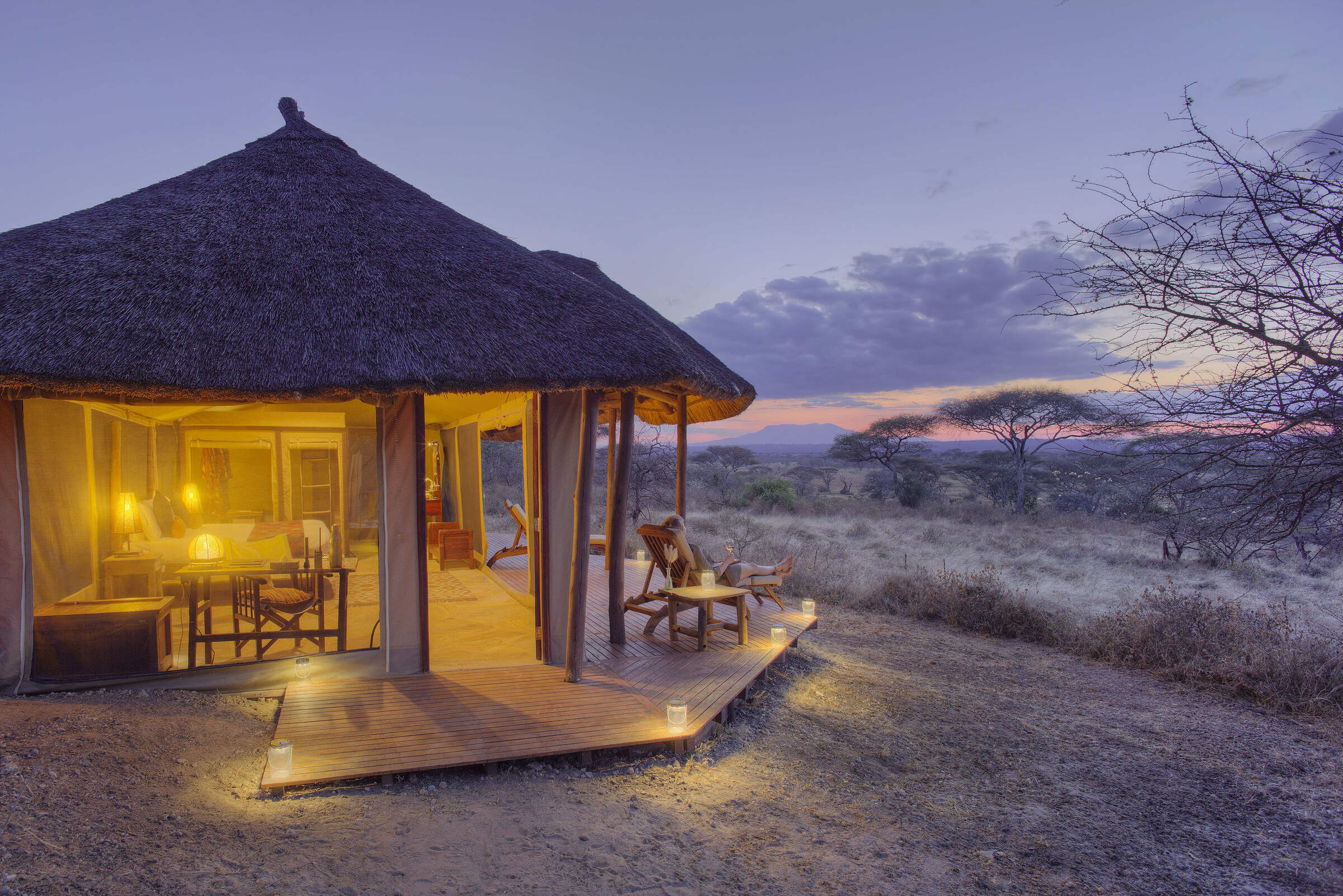
Oliver's Camp
Oliver's Camp is a small, intimate, luxury tented camp in a great location in northern Tanzania's Tarangire National Park.

Kuro Tarangire
Kuro Tarangire is a stylish tented camp, located in a quiet and remote area deep in Tarangire National Park.

Little Oliver's
For a more private version of its sister property, Oliver’s Camp, Little Oliver’s offers high-quality guiding and tented rooms.
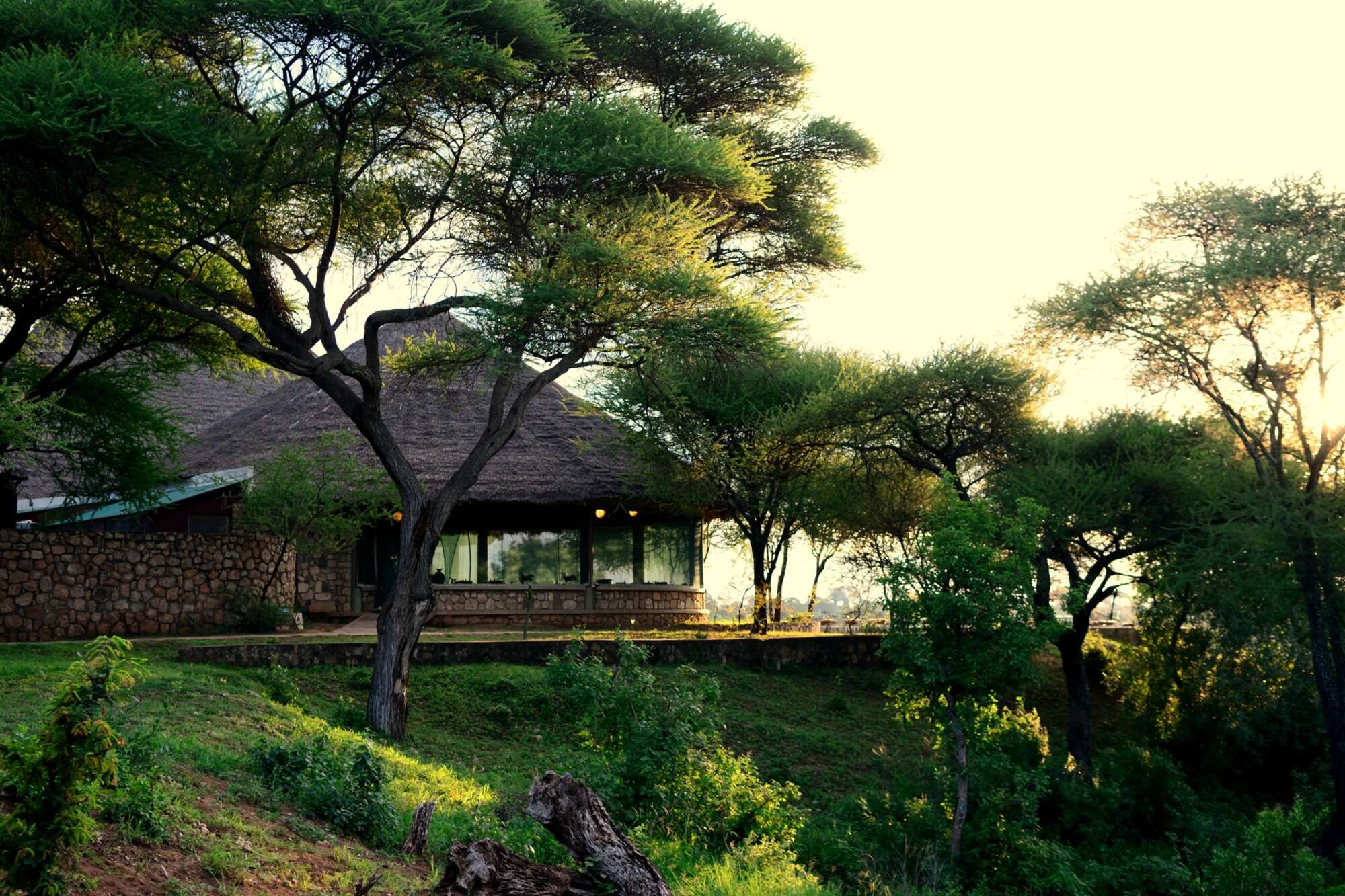
Tarangire Safari
Functional Tarangire Safari Lodge is one of Tarangire National Park's larger lodges, on a prime central site overlooking the river.

Lemala Mpingo Ridge
Lemala Mpingo Ridge is a stylish camp in Tarangire National Park, with a beautiful location and elevated views over the park.

Tarangire Sopa Lodge
Tarangire Sopa Lodge is a large, comfortable, family-friendly hotel in Tarangire National Park, suitable for travellers on a budget.

Swala Camp
Swala Camp is a stylish camp for exploring the southern Tarangire, either with a private driver-guide, or using the camp's vehicles and guides.

Tarangire Treetops
Tarangire Treetops is a lovely, high-quality lodge on the outskirts of Tarangire National Park, offering game drives, night drives and safari walks.

Kirurumu Tarangire
Kirurumu Tarangire Lodge is a simple, small, tented camp positioned just outside the northern boundary of Tarangire National Park.

Maramboi Tented Camp
Maramboi Tented Camp is a family-friendly tented lodge located between Lake Manyara and Tarangire National Park.

Chem Chem
Chem Chem is a luxury tented lodge on a private concession between Lake Manyara and Tarangire national parks.

Olkeri Camp
Olkeri is a comfortable tented camp, located in the Randilen Wildlife Management area, bordering Tarangire National Park; ideal for those looking for pristine wilderness.

Nimali Tarangire
Nimali is a small camp built in contemporary style on the outskirts of Tarangire National Park in northern Tanzania.

Forest Chem Chem
Located in the Chem Chem Concession and close to Tarangire National Park, Forest Chem Chem is a high-quality tented camp which is booked on an exclusive basis.

Little Chem Chem
Little Chem Chem is a stylish option near Tarangire National Park, offering real relaxation combined with a variety of safari activities.
Our travellers’ wildlife sightings in Tarangire
This is their success for sightings in Tarangire National Park. Click on a species for more detail. How we work this out.

100% success

98% success

96% success

94% success

94% success

83% success

69% success

65% success

60% success

58% success

43% success

10% success

10% success

2% success

0% success

0% success
When to go to Tarangire National Park
Tarangire National Park has distinct dry and rainy seasons.
The main dry season (June to October) offers excellent wildlife viewing as animals gather around the Tarangire River and swamps. Large elephant herds, buffalos and zebras are easily spotted, and the iconic baobab trees create stunning photographic opportunities.
The short rains occur in November and December, followed by a short dry season in January and February. The long rains from March to May turn the park lush and green, ideal for birdwatching and photography.
Temperatures are stable year-round, with cooler mornings and evenings in the dry season.
Jan
Feb
Mar
Apr
May
Jun
Jul
Aug
Sep
Oct
Nov
Dec
Tarangire National Park in January
January marks the start of the short dry season. The Tarangire River becomes a crucial water source, attracting diverse wildlife. Elephants, buffaloes, and zebras congregate around the river and swamps. The iconic baobab trees stand out against the landscape, providing food and shelter for animals. Birdwatching is excellent as resident birds display breeding plumage and migrant species are present.
The Silale and Gurusi swamps teem with hippos and crocodiles. While the southern areas of the park may still be wet, the northern regions offer great game viewing. The Matete Woodlands provide opportunities to spot leopards and rare fringe-eared oryx antelopes. January can offer great value for visitors, with quieter park conditions and variable weather.
- Variable weather, dry or rainy periods
- Good for birding, many migrant species present
- Elephant herds gather near Tarangire River
- Lush landscapes ideal for photography
- Quieter after early January rush
Our view
A good time to visit, with pros & cons
Weather in January
Tarangire National Park in February
February in Tarangire National Park is one of the hottest months, with temperatures reaching around 33°C/91°F. The short dry season continues, making it an excellent time for wildlife viewing. The Tarangire River and surrounding swamps become focal points for animal activity. Large herds of elephants, numbering over 3,000, are a major attraction.
The north offers impressive vegetation and birdlife, including large flocks of red-billed quelea birds and various raptors. Birdwatchers will enjoy the park's 550+ species, with northern hemisphere migrants joining resident birds. February is lovely for ballooning, offering unique aerial views of the park's diverse landscapes and wildlife during the cooler morning hours.
- Hot and dry weather prevails
- Large elephant herds visible near water sources
- Excellent time for game drives and safaris
- Baobab trees stand out in dry landscape
- Park less crowded, better wildlife viewing
Our view
A very good time to visit
Weather in February
Tarangire National Park in March
As March arrives in Tarangire, the long rains begin, transforming the landscape. This is an important time for the park's famous baobab trees, which store water in their trunks. While game viewing becomes more challenging due to dispersing wildlife, it's an excellent time for photography as the scenery turns lush and green.
The Tarangire ecosystem, including granitic ridges and river valleys, offers stunning views of the Great Rift Valley. Birdwatching remains rewarding, especially in the swampy floodplains and woodlands. March remains challenging for guided walking safaris, as the vegetation is high and thick.
- Hot with increasing humidity before rains
- Wildlife viewing varies as rains approach
- Quiet park with lower visitor numbers
- Migratory birds still present in good numbers
- Balloon safaris offer stunning aerial views
Our view
A good time to visit, with pros & cons
Weather in March
Tarangire National Park in April
April is the wettest month in Tarangire, with an average of 250mm of rain. The park's landscape is at its lushest, with flowering plants attracting insects and smaller animals. While big game viewing is more challenging due to dense vegetation, it's an excellent time for photographers to capture the vibrant scenery. The Tarangire River and swamps swell, creating picturesque scenes.
Birdwatching remains exceptional, with over 550 species present in the park. Visitor numbers are low, providing a more intimate safari experience.
- Heavy rains with impressive thunderstorms
- Some camps closed due to weather conditions
- Lowest rates and very few other tourists
- Lush green landscape, but wildlife dispersed
- Birdwatching excellent for resident species
Our view
This is not a great time to visit
Weather in April
Tarangire National Park in May
As May progresses in Tarangire, the long rains begin to taper off. The park's diverse habitats, from woodlands to savannahs, are lush and green. While wildlife viewing can still be challenging due to high grass, patient observers may spot leopards in the Matete Woodlands. The swamps, including Silale and Gurusi, are full of water, attracting numerous bird species.
May is an excellent time for photography, with dramatic skies and verdant landscapes. The Tarangire ecosystem is at its most vibrant, showcasing the park's stunning biodiversity. Visitor numbers remain low, offering peaceful game drives. Cultural visits to nearby Maasai communities provide insights into local traditions and lifestyles.
- Rains continue, creating dramatic skies
- Quiet time to visit, avoiding crowds
- Park lush and green with high grass
- Wildlife more dispersed, fewer sightings
- Affordable rates for budget-conscious visitors
Our view
This is not a great time to visit
Weather in May
Tarangire National Park in June
June marks the beginning of the dry season in Tarangire. As the landscape starts to dry, wildlife begins to congregate around permanent water sources. The famous Tarangire River becomes a hub of animal activity, attracting diverse species. Elephant herds become more visible as they move towards reliable water supplies.
June is an excellent time for birdwatching, with over 550 species present in the park. The Lemiyon Triangle in the north offers impressive vegetation and birdlife. As the grass starts to shorten, game viewing improves, especially along the Birungi Circuit. June is lovely for balloon safaris, providing breathtaking views of the awakening landscape and wildlife below.
- Weather transitions from wet to dry
- Wildlife starts concentrating near water
- Park still green with some high grasses
- Visitor numbers increasing gradually
- Good value with shoulder season prices
Our view
A good time to visit, with pros & cons
Weather in June
Tarangire National Park in July
July is a prime month for wildlife viewing in Tarangire. As the dry season progresses, large herds of elephants, buffaloes and zebras gather around the Tarangire River and swamps. The park's famous baobab trees stand out against the increasingly arid landscape. Game drives along the Birungi Circuit offer excellent opportunities to spot lesser kudu and massive elands.
Birdwatching remains rewarding, especially around the park's swamps and woodlands. The Matete Woodlands provide good chances to see leopards and rare fringe-eared oryx antelopes. July is perfect for photography, with clear skies and animals congregating at water sources. Guided nature walks provide intimate encounters with the park's flora and fauna. Sundowner game drives offer magical experiences as the African sun sets over the savannah.
- Dry season begins, excellent wildlife viewing
- Large elephant herds visible near river
- Popular time with higher visitor numbers
- Peak prices due to optimal conditions
- Guided walks offer intimate wildlife experiences
Our view
Fantastic: the very best time to visit
Weather in July
Tarangire National Park in August
August in Tarangire offers exceptional wildlife viewing opportunities. The dry season is in full swing, concentrating animals around the Tarangire River and remaining water sources. Large elephant herds, sometimes numbering in the hundreds, are a common sight. The park's swamps, including Silale and Gurusi, attract diverse wildlife.
Birdwatching is excellent, with many species gathering around water bodies. The iconic baobab trees provide a striking backdrop for photography. August is ideal for balloon safaris, offering panoramic views of the park's diverse landscapes and wildlife. Guided nature walks provide intimate encounters with the park's flora and fauna. Cultural visits to nearby Maasai communities offer insights into traditional lifestyles.
- Dry conditions, animals gather at water sources
- Excellent general wildlife viewing
- Busy season with higher visitor numbers
- Swamps attract diverse wildlife species
- Night drives reveal nocturnal animals
Our view
Fantastic: the very best time to visit
Weather in August
Tarangire National Park in September
September is an excellent month to visit Tarangire. As the dry season peaks, wildlife concentrates around remaining water sources, particularly the Tarangire River. Large herds of elephants, wildebeests, and zebras offer spectacular viewing opportunities. The Matete Woodlands and Birungi Circuit provide chances to spot predators like leopards. Birdwatching remains rewarding, with over 550 species in the park.
The landscape, dotted with iconic baobab trees, offers stunning photographic opportunities. September is ideal for guided walking safaris, allowing visitors to explore the park's ecosystem up close. Balloon safaris provide breathtaking aerial views of the parched landscape and congregating wildlife.
- Fantastic wildlife viewing opportunities
- Parks becoming very dry, animals congregate
- Slightly quieter than peak August period
- Baobab trees in full leaf, great for photos
- Higher chances of seeing large predators
Our view
Fantastic: the very best time to visit
Weather in September
Tarangire National Park in October
October in Tarangire marks the end of the dry season, offering some of the best wildlife viewing opportunities. The Tarangire River and surrounding swamps become crucial for survival, attracting large concentrations of animals. Elephant herds are particularly impressive during this time. The park's famous baobab trees stand out against the parched landscape. Birdwatching is excellent, with many species congregating around remaining water sources.
October is ideal for photography, with clear skies and abundant wildlife. Balloon safaris provide stunning aerial views of the park's varied landscapes and wildlife. As the month progresses, there's a chance of early rains, bringing new life to the park.
- Mostly dry with comfortable temperatures
- Excellent game viewing around water sources
- Lower visitor numbers than earlier months
- Balloon safaris offer breathtaking views
Our view
A very good time to visit
Weather in October
Tarangire National Park in November
November in Tarangire sees the start of the short rains, transforming the landscape. The famous baobab trees begin to flower, creating a lush backdrop. Wildlife starts to disperse as water becomes more widely available, but game viewing remains good. The Tarangire River and swamps continue to attract diverse species. November is excellent for birdwatching as migratory birds arrive, joining the park's 550+ resident species.
As the vegetation greens, photography opportunities abound. Guided nature walks provide insights into the park's changing ecosystem. Cultural visits to nearby Maasai communities offer unique experiences. November can offer great value with shoulder season rates and fewer visitors.
- Variable weather, chance of rain increasing
- Parks quieter, prices more affordable
- Wildlife disperses as rains begin
- Migratory birds start arriving in the park
- Green season begins, landscape transforms
Our view
A good time to visit, with pros & cons
Weather in November
Tarangire National Park in December
December in Tarangire brings a mix of wet and dry conditions. The short rains continue, rejuvenating the landscape. The famous baobab trees are in full leaf, providing shade and food for wildlife. While animals are more dispersed than in the dry season, game viewing remains rewarding. The Tarangire River and swamps continue to attract diverse species.
December is excellent for birdwatching, with migratory birds present alongside resident species. Balloon safaris provide stunning views of the greening landscape. Cultural visits to nearby communities offer insights into local holiday traditions. Despite being a popular time for visitors, especially during the festive season, December can still offer peaceful safari experiences in less-visited areas of the park.
- Variable weather, mix of dry and rainy days
- Good game viewing in Tarangire River area
- Quiet early month, busy during holidays
- Prices vary from low to peak holiday rates
- Lush landscapes after early rains
Our view
A good time to visit, with pros & cons
Weather in December
Tarangire National Park: In detail
Tarangire National Park
The park's most obvious features are the permanent Tarangire River, which runs the length of it, and the seasonal swamps, which are often dry for much of the year.
Despite the fact that Tarangire is drier than the Serengeti, its vegetation is generally much more dense including densely packed elephant grass, large areas of mixed acacia woodlands and some lovely ribbons of riverine forest.
Wildlife
Particularly large numbers of elephant herds congregate here, as do many wildebeest and zebra. There are also substantial populations of impala, giraffe, eland and buffalo. Thompson's gazelle, Coke's hartebeest, bohor reedbuck and both greater and lesser kudu are found here. The localised and unusual gerenuk and fringe-eared oryx also occur here, though in our experience they are seen exceedingly rarely. There are still thought to be a few black rhino in the park.
Lions are common throughout Tarangire, as are leopard, while cheetahs favour the more open areas of the south. Spotted hyenas are always around, and while wild dog sometimes pass through sightings of them are rare.
Birdlife
Vegetation
Map of Tarangire National Park
Choices for where to stay in Tarangire National Park

Tarangire National Park: Safaris
Each of the Tanzania safari holidays to Tarangire National Park listed below lasts between one and two weeks. On many of them you’ll be privately guided and travel in a private 4WD. Tarangire is one of the most famous, but quiet, genuinely wild parks in Tanzania. Walking safaris and game drives here are particularly worthwhile during Tanzania's long dry season.
Consider our Tanzania beach holidays and Zanzibar beach add-ons for some relaxation at the start or end of your safari!

Firefinch Drive-Fly Safari
9 days • 3 locations
KILIMANJARO AIRPORT TO KILIMANJARO AIRPORT
Enjoy a combination of privately guided and shared game drives during this good-value exploration of northern Tanzania. Explore game-dense regions from three comfortable bases which offer a variety of activities.
US$7,720 - US$14,200 per person

Tinkerbird Fly-in Safari
8 days • 4 locations
KILIMANJARO AIRPORT TO KILIMANJARO AIRPORT
Explore Tanzania’s famous northern circuit in Tarangire National Park, the Ngorongoro Conservation Area and the Serengeti National Park. Four smart sister camps offer a high level of care, first-class guiding and a wide range of activities.
US$10,410 - US$14,140 per person

Fringe-eared Oryx Fly-in Safari
7 days • 3 locations
KILIMANJARO AIRPORT TO KILIMANJARO AIRPORT
Stay in three superbly positioned camps during this exploration of Tanzania’s famous northern circuit. Excellent views over the surrounding areas, relatively remote locations and game-rich habitat make for an exciting and varied safari experience.
US$7,300 - US$14,860 per person

Marabou Stork Fly-in Safari
13 days • 5 locations
KILIMANJARO AIRPORT TO DAR ES SALAAM AIRPORT
Four luxurious camps enable exploration of Tanzania’s north and southern regions. With a range of land- and water-based activities available throughout, decidedly comfortable accommodation and applicable long-stay discounts, this adventurous safari is excellent value.
US$19,410 - US$25,560 per person

Regal Sunbird Fly-in Safari
12 days • 5 locations
KILIMANJARO AIRPORT TO DAR ES SALAAM AIRPORT
Experience the highlights of Tanzania with a safari in the country’s famous northern parks followed by historic Stone Town and the palm-fringed beaches of Zanzibar, staying in high-quality accommodation throughout.
US$10,570 - US$16,370 per person

Hadeda Ibis Guided Safari
7 days • 3 locations
KILIMANJARO AIRPORT TO KILIMANJARO AIRPORT
This great-value safari, in a private 4WD with your own driver-guide, journeys through the stunning landscapes of northern Tanzania’s Great Rift Valley, focusing on its three top national parks.
US$4,980 - US$6,110 per person

Secretary Bird Fly-in Safari
8 days • 4 locations
KILIMANJARO AIRPORT TO KILIMANJARO AIRPORT
Chosen for comfort and relaxation as much as for its range of activities, this safari makes for a leisurely trip featuring stunning accommodation and swift access to many of northern Tanzania’s best wildlife regions.
US$14,030 - US$18,080 per person

Dik Dik Safari
12 days • 4 locations
KILIMANJARO AIRPORT TO DAR ES SALAAM AIRPORT
Combine safari with peace and relaxation on Zanzibar’s white-sand shores during this exploration of Tanzania. Stay in three high-quality sister camps within Tarangire National Park, Ngorongoro Conservation Area and Serengeti National Park before concluding with a stay on Michamvi Peninsula.
US$9,920 - US$15,130 per person
Best 15 lodges and safari camps in Tarangire National Park
Listed below are our recommendations for nice places to stay in Tarangire National Park. Ask us for more details of what's where, and what's likely to suit you best!

Oliver's Camp
Oliver's Camp is a small, intimate, luxury tented camp in a great location in northern Tanzania's Tarangire National Park.

Kuro Tarangire
Kuro Tarangire is a stylish tented camp, located in a quiet and remote area deep in Tarangire National Park.

Little Oliver's
For a more private version of its sister property, Oliver’s Camp, Little Oliver’s offers high-quality guiding and tented rooms.

Tarangire Safari
Functional Tarangire Safari Lodge is one of Tarangire National Park's larger lodges, on a prime central site overlooking the river.

Lemala Mpingo Ridge
Lemala Mpingo Ridge is a stylish camp in Tarangire National Park, with a beautiful location and elevated views over the park.

Tarangire Sopa Lodge
Tarangire Sopa Lodge is a large, comfortable, family-friendly hotel in Tarangire National Park, suitable for travellers on a budget.

Swala Camp
Swala Camp is a stylish camp for exploring the southern Tarangire, either with a private driver-guide, or using the camp's vehicles and guides.

Tarangire Treetops
Tarangire Treetops is a lovely, high-quality lodge on the outskirts of Tarangire National Park, offering game drives, night drives and safari walks.

Olkeri Camp
Olkeri is a comfortable tented camp, located in the Randilen Wildlife Management area, bordering Tarangire National Park; ideal for those looking for pristine wilderness.

Kirurumu Tarangire
Kirurumu Tarangire Lodge is a simple, small, tented camp positioned just outside the northern boundary of Tarangire National Park.

Maramboi Tented Camp
Maramboi Tented Camp is a family-friendly tented lodge located between Lake Manyara and Tarangire National Park.
Excursions in Tarangire National Park
Optional, extra day-trips and excursions that are possible while you’re staying in Tarangire National Park. Talk to us: these excursions are usually best arranged before you go.

Lake Manyara Safari
Half-day or full-day
Set against the spectacular backdrop of the Rift Valley escarpment, Lake Manyara National Park makes a great safari destination. Here, along with elephant herds and plains game, you’ll find jungle-like forests that are home to blue monkeys, a soda lake tinged pink by flamingos and some of Tanzania’s best birding.
More about Lake Manyara Safari
Lake Manyara Treetop Walkway
Usually one hour
Experience the forest of Lake Manyara National Park from a whole new perspective – high up in the trees. The first suspended walkway in Tanzania, it stretches underneath the canopy for 370m between the mahogany and fig trees, giving intrepid visitors a unique view of the surrounding flora and fauna.
More about Manyara Treetop Walk
Looking for inspiration on where to travel next?
Visit our trip chooser to explore your options and find inspiration for your perfect African adventure
Inspire me